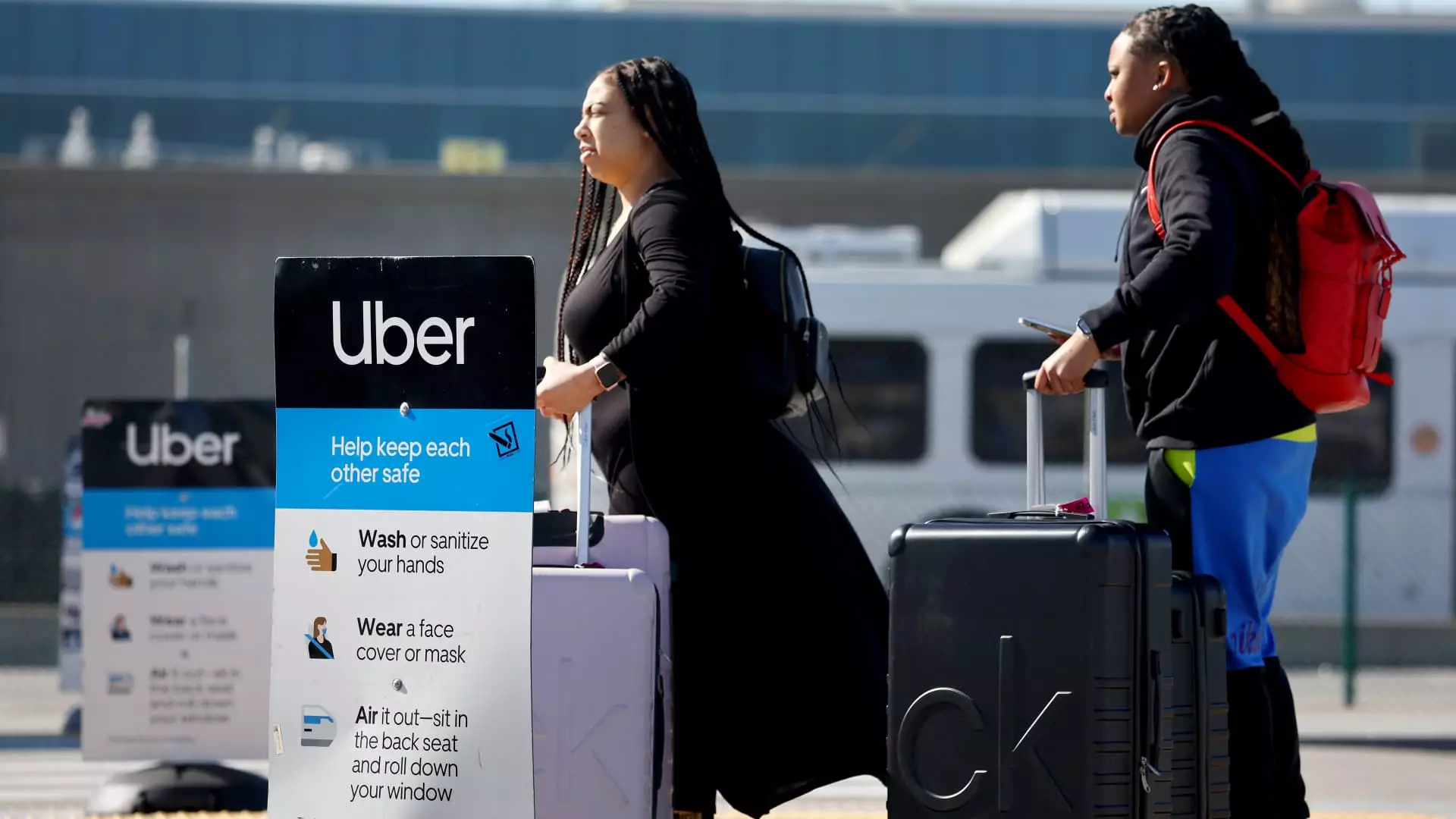Delta Air Lines Partners with Uber: A Strategic Shift in Loyalty Programs

As the travel industry continues its recovery following the pandemic’s disruptions, Delta Air Lines has announced a significant transition from its long-standing partnership with Lyft to a new alliance with Uber. This strategic shift not only underscores Delta’s commitment to enhancing customer experience but also highlights the increasing importance of integrated loyalty programs in the airline and transport sectors.
Beginning this spring, Delta SkyMiles members will have the opportunity to earn miles on their Uber rides, an initiative expected to entice travelers who seek seamless connectivity between their air and ground travel preferences. Delta SkyMiles will allow its members to earn one mile for every dollar spent on basic UberX rides to and from the airport. However, the mileage potential significantly escalates for premium offerings; customers can earn two miles per dollar spent on Uber Comfort and Uber Black rides, and an impressive three miles per dollar for Uber Reserve trips.
This partnership extends beyond ride-hailing, as customers can also accumulate one mile for every dollar spent on Uber Eats orders exceeding $40. This feature not only emphasizes Delta’s comprehensive approach to customer rewards but also reflects a trend where airlines are seeking to create multifaceted loyalty programs that engage their customers beyond flight miles.
Delta has maintained its partnership with Lyft for eight years, but the decision to transition indicates a pivot toward a larger player in the ride-hailing market. While details about the reasoning behind this switch remain sparse, industry experts speculate that Delta’s choice is influenced by the broader reach and user base of Uber, which boasted 161 million monthly active users by the end of September. This represents a significant contrast to Lyft’s 24.4 million active riders, suggesting that Delta is aiming for a partnership that could yield higher standing mileage accrual for its loyal customers.
As Delta prepares for this transition, customers currently linked to Lyft accounts will have until April 7 to earn their miles. Communication is underway from both Delta and Lyft to inform customers about the upcoming changes, reinforcing the idea that customer experience remains a priority in these alterations.
This partnership between Delta and Uber signals broader trends in how companies are reshaping their loyalty strategies. Airlines, like Delta, are increasingly integrating their customer engagement efforts with popular brands ensuring that members are offered more than just air miles. By forming ties with Uber, Delta joins the ranks of other partners it maintains, including Starbucks, Hertz, and Ticketmaster. This multi-faceted approach amplifies the value of loyalty programs, presenting an ecosystem in which frequent travelers can earn rewards through various lifestyle purchases.
Equally important is the integration of payment ecosystems; for instance, Delta’s credit card partner American Express offers advantages linked directly to Uber services. This indicates that loyalty programs are becoming more intertwined with financial services, creating additional value for both the airlines and their partners.
As travel begins to normalize and consumer demands evolve, Delta’s announcement at the CES tech show in Las Vegas hints at an even broader ambition to enhance overall travel experiences. Alongside the partnership with Uber, Delta revealed plans to launch an AI-powered assistant in its mobile app and to upgrade in-flight entertainment systems. Such initiatives suggest that airlines are meticulously designing customer journeys that are efficient, comprehensive, and personalized.
Delta Air Lines’ shift from Lyft to Uber represents more than just a change in partners; it illustrates a consistent evolution in the loyalty programs where airlines are proactively adapting to consumer expectations for connected travel experiences. As this trend continues, various aspects of the airline and ground transportation sectors are poised for pivotal changes, reflecting a new era of customer engagement and loyalty enhancement strategies.





